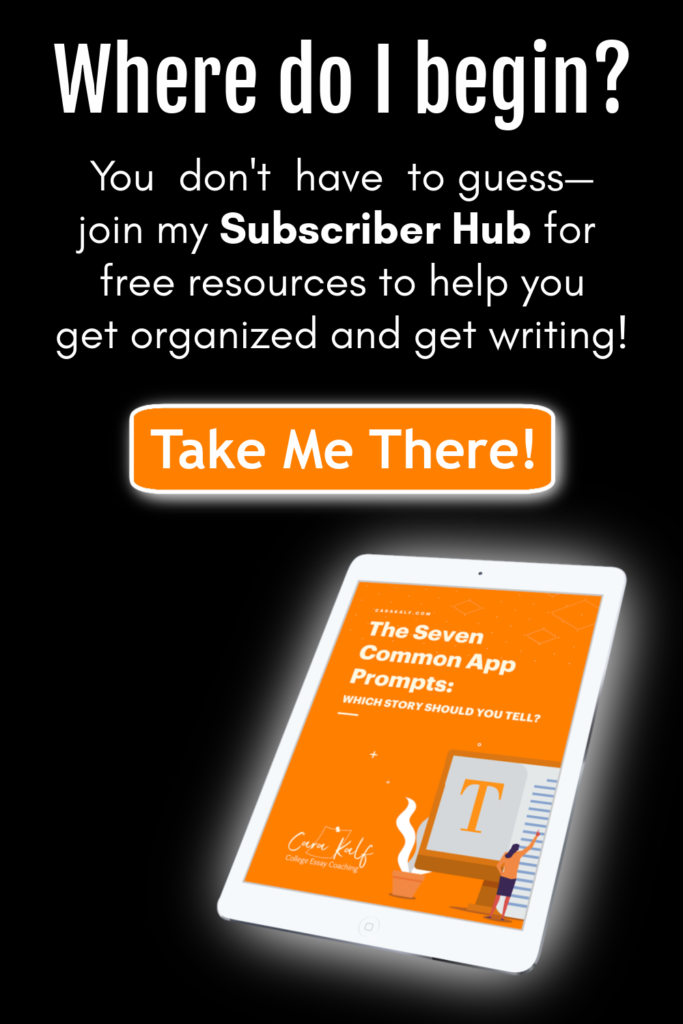Start Your College Essay While Time Is Still On Your Side
“There’s a difference between giving yourself time and space to think of your best ideas and avoiding an important job.”
In 2016, writer Adam Grant published an op-ed under the provocative title, “Why I taught myself to procrastinate.” In it, he explained how research has supported that taking more time, even time off-task, makes people more creative. He described writing a draft of that very column and putting it away for three weeks. “When I came back to it,” he wrote, “I had enough distance to wonder, ‘What kind of idiot wrote this garbage?’ and rewrote most of it.”
The problem with the click-bait title is that the author admits to having something of an obsessive nature about finishing work early, something he explained in the article that psychologists have even coined a new term for: “pre-crastination.”
Learning and accepting that certain things can’t be finished right away is not remotely the same thing as saying that procrastinating is better than working at a reasonable pace. If he hadn’t started the piece right away, he wouldn’t have had the luxury of putting it away for three weeks.
The dictionary definition of procrastination is simply to defer action or delay. By that strict parameter, Grant’s usage is correct. But obviously, in common usage, the word “procrastination” carries a lot more connotations—specifically, “avoiding a task one doesn’t want to work on, usually by spending time on low-value activities.” Grant’s piece asks readers to redefine procrastination as leaving space for creativity in your work process. He even wrote at one point about the insights he had while he was “procrastinating (i.e., thinking).” The abbreviation i.e. is for the Latin id est, or “that is.” He’s actually equating procrastination with thinking. As a person passionate about words, this doesn’t work for me.
If you use a word, deliberately ignoring its common usage and understanding, you are failing to communicate. Anyone who doesn’t read Grant’s piece far enough or carefully enough would believe he was advocating for simply avoiding work. They would, reasonably, assume he was using procrastination to mean … what we all use it to mean. And if we accept this massive linguistic shift, what new word would we then use to describe the action of avoiding a task by wasting time on low-value activities—which we used to have a word for?
Of course, Grant knows this. He isn’t really trying to redefine procrastination, he’s just counting on your click. He also doesn’t really advocate for wholesale procrastination (which in common usage means completely putting off a task—not beginning it and then letting it sit to finish later). He tells of the research subjects who waited until the last minute to begin a project. “They had to rush to implement the easiest idea instead of working out a novel one,” and their work was rated as less creative.
The Common App is almost open. That doesn’t mean you should be stressing about how soon you can hit “submit” (if you’re a pre-crastinator like Grant). It does mean you should really get to know the prompts so you can let yourself think about them without rushing. That makes now a great time to join my Subscriber Hub! Try out my Trello organizing boards (so you can “procrastinate” take your time in an organized fashion) and read my guided tour of the Common App prompts.
Photo by Andrew Neel on Unsplash



